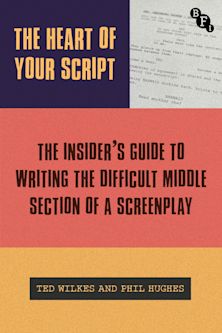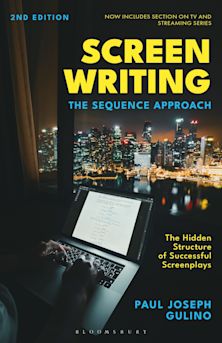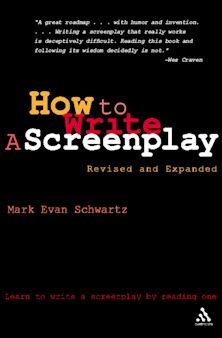- Home
- ACADEMIC
- Film & Media
- Screenwriting
- How Stage Playwrights Saved the British Cinema, 1930-1956
How Stage Playwrights Saved the British Cinema, 1930-1956
The Well-Made Screenplay
How Stage Playwrights Saved the British Cinema, 1930-1956
The Well-Made Screenplay
You must sign in to add this item to your wishlist. Please sign in or create an account
Description
Examines the film careers and work of British playwrights who worked as screenwriters between 1930-1956.
During the period between the 1927 Cinematograph Films Act and the 'new drama' of the 1950s, many British writers associated with the stage also wrote for films, bringing the techniques of the well-made play with them. Some, like Bernard Shaw, Noel Coward, and Terence Rattigan were screenwriter-stars, part of the publicity of the films they worked on – Pygmalion, Brief Encounter, The Way to the Stars. Others were less celebrated but had long, successful screen careers, such as R. C. Sherriff, author of Journey's End, who worked on films as different as The Invisible Man, The Four Feathers and The Dam Busters. Using the authors' original archives, this book follows the way in which these writers adapted their stage skills for the screen, contributing to the post-war 'Golden Age 'of the British cinema, and creating the classic form of screenplay that continues today.
Table of Contents
Introduction
1. The Well-Made Play
2. The British Cinema in the 1930s
3. George Bernard Shaw: The Screenwriter as Star
4. Noel Coward
5. Terence Rattigan
6. Rodney Ackland and Emlyn Williams
7. R.C. Sherriff and the Art of Adaptation
8. Conclusion
Bibliography
Filmography
Notes
Index
Product details

| Published | 26 Dec 2024 |
|---|---|
| Format | Ebook (Epub & Mobi) |
| Edition | 1st |
| Extent | 256 |
| ISBN | 9798765101063 |
| Imprint | Bloomsbury Academic |
| Publisher | Bloomsbury Publishing |
About the contributors
Reviews
-
The quality of the research is impressively thorough, in relation to both the original plays and to the films derived from them, and the quality of the author's writing makes it accessible to non-specialists as well as to other academics.
Brian McFarlane, Adjunct Professor, Swinburne University of Technology, Melbourne
-
In this engaging, wide-ranging and meticulously researched new study, David Cottis argues that in the 1930s and 1940s, celebrated British playwrights adapted the venerable form of the well-made play to transform the fortunes of British film. Cottis unearths the treasures hidden in a wealth of UK archives to show how dramatists including George Bernard Shaw, Noël Coward and Terence Rattigan, often in collaboration with leading directors such as David Lean and Anthony Asquith, created some of the enduring classics of British cinema.
Steven Price, Emeritus Professor in Literature and Film, Bangor University, UK
-
This is an important new study of British films and filmmaking, bringing a fresh perspective to the relationship between stage and screen, and offering expert commentary on key writers and classic films.
Mark Glancy, Professor of Film History, Queen Mary University of London, UK

ONLINE RESOURCES
Bloomsbury Collections
This book is available on Bloomsbury Collections where your library has access.


































